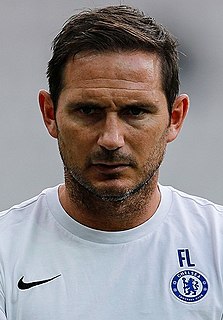A Quote by Daniel Olivas
I think being raised within a Mexican Catholic family made magical realism a very natural part of who I am as a person and as a writer. My parents always told us great stories that often had magical elements and roots within Mexican folklore. Also, I remember my father reading a book to me, when I was very young, about the lives of saints. Those were crazy scary stories! Maybe he was trying to scare me into being a good person. In the end, magical realism offers me untethered freedom to explore human frailty and the way we clumsily cobble together our lives on this strange planet.
Quote Topics
About
Also
Always
Am
Being
Being A Good Person
Book
Catholic
Catholic Family
Crazy
Elements
End
Explore
Family
Father
Folklore
Frailty
Freedom
Good
Good Person
Great
Had
Human
In The End
Lives
Made
Magical
Magical Realism
Maybe
Me
Mexican
Natural
Offers
Often
Our
Our Lives
Parents
Part
Person
Planet
Raised
Reading
Realism
Remember
Roots
Saints
Scare
Scary
Scary Stories
Stories
Strange
Think
Those
Together
Trying
Us
Very
Way
Were
Who I Am
Within
Writer
Young
Related Quotes
The Americans only like things they can label, even if it kills them. Think of those poor Latin American writers. Some of them are very good. But the "magical realism" label has absolutely ruined them. The critics are like tourists who return from a trip saying they've "done" Machu Picchu: "Okay, we've done magical realism," so now we can throw it out.
So I found myself telling my own stories. It was strange: as I did it I realised how much we get shaped by our stories. It's like the stories of our lives make us the people we are. If someone had no stories, they wouldn't be human, wouldn't exist. And if my stories had been different I wouldn't be the person I am.
The old idea that words possess magical powers is false; but its falsity is the distortion of a very important truth. Words do have a magical effect - but not in the way that magicians supposed, and not on the objects they were trying to influence. Words are magical in the way they affect the minds of those who use them.
The desire for story is very, very deep in human beings. We are the only creature in the world that does this; we are the only creature that tells stories, and sometimes those are true stories and sometimes those are made up stories. Then there are the larger stories, the grand narratives that we live in, which are things like nation and family and clan and so on. Those stories are considered to be treated reverentially. They need to be part of the way in which we conduct the discourse of our lives and to prevent people from doing something very damaging to human nature.
There's this sense of being strange, which is at the heart of every creative person. Every writer, every actor, every director knows who Ripley is. We've made careers and lives out of pretending, making things up, inhabiting other people's stories and lives. That's what I do every day. . . . The story is so audacious and subversive: a central character who behaves badly and isn't apparently caught. That intrigued me no end.



































